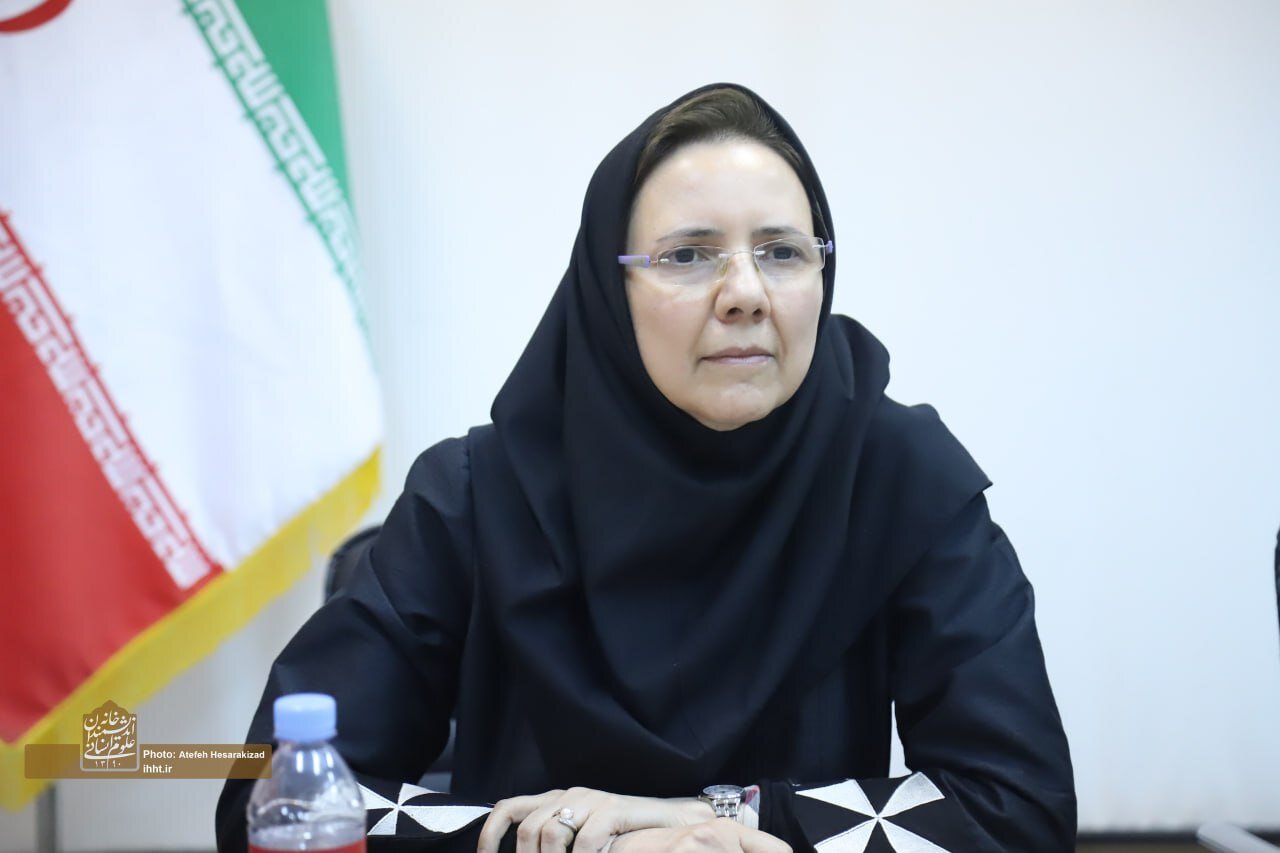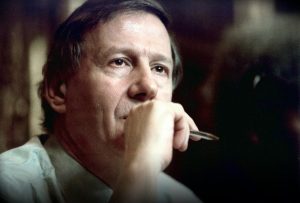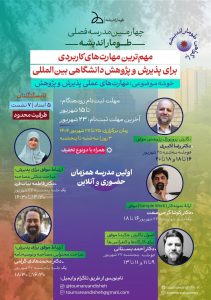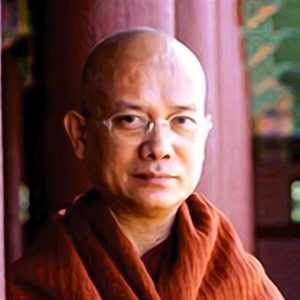Forozan Asif Nakhai: According to the news agency Online newsHouse of Humanities Thinkers held the “Literature and Development” meeting on December 10, 1403. One of the speakers of this meeting was Dr. Farzaneh Farshadi, who examined the relationship between literature and development from Hegel’s point of view.
Referring to the title of his discussion, which is “The ratio of literature and development”, he said: “In the title of the discussion, “The ratio of literature and development”, this “and” is very important to me. The question is, is this “and” an inflectional waw or a contraversive waw?
Farzaneh Farshadi went on to discuss Hegel’s point of view and said: “I want to check that in Hegel’s view as a confrontational thinker, literature and development are in conflict with each other, or are they a turning point, that is, can they be in line with each other and help each other?” »
Farshadi emphasized that “but this is not how Hegel addressed these issues directly” and said: “This question has been raised for me and I am connecting my concepts with Hegel’s concepts.”
Introductions to the discussion
This researcher in the field of literature and development said about his first prologue: “In the first prologue, I examine what issue Hegel was facing when he addressed literature separately and specifically to modernity. Modernity is the thought of development, so we should see how Hegel thought about the science of development. so that we can extract the answers. First, I must discuss Descartes later than Hegel, because the idea of modernity begins with Descartes from the separation of object and mind. It means the separation of subject and object.
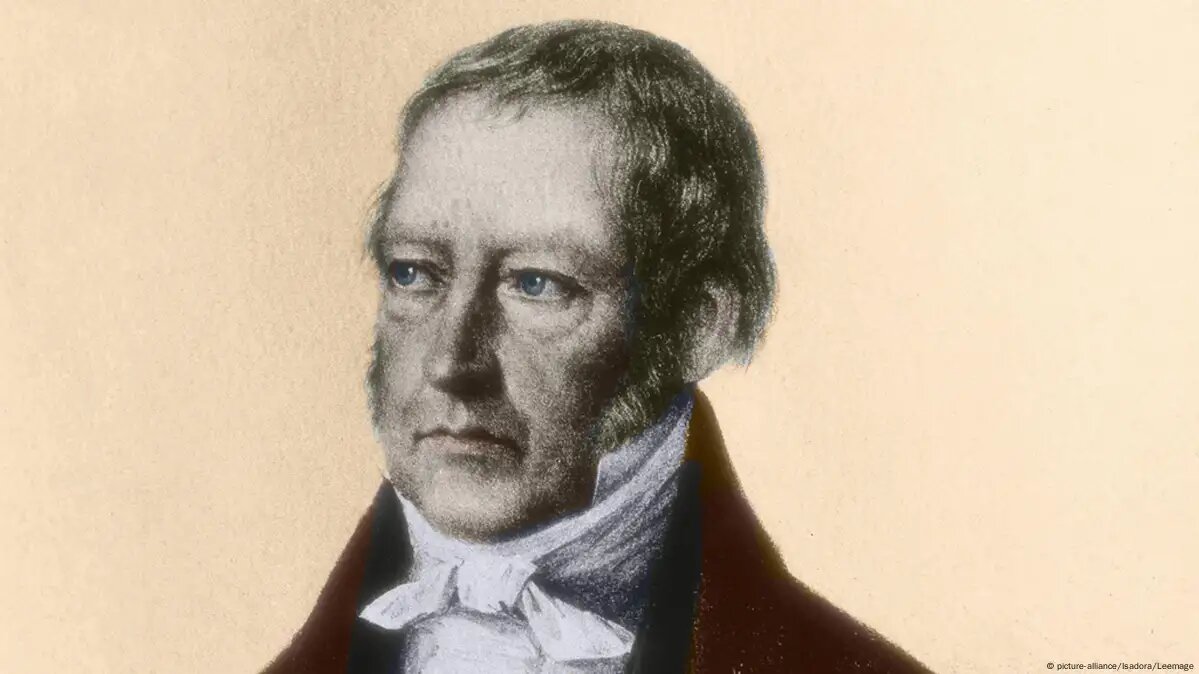
Georg Wilhelm Friedrich Hegel
In order to understand Hegel, Farshadi first looks at Descartes and says: “Although Descartes did not have such an intention, but along his thinking, something like this happens, that is, the subject and the object are separated from each other. At the same time, the golden age of science had begun, and with the French Revolution, the English Industrial Revolution, Copernicus, and Galileo, they were all talking about science and rationalism as opposed to earlier empiricism. And due to the separation of object and subject in Descartes’ thought, with the famous sentence “I think therefore I am”, it happens that Hegel is their observer. The object is seen in its manifestation of industry, and next to it is the separation of the subject, which is very self-centered and self-centered. Very individualistic people, with a lot of ego, and Hegel sees and predicts these 200 years ahead of us. It means that this scientism and rationalism, along with this development and all the other events that are happening in the West, is creating a subject and a hypertrophied human being with a very big ego, and this itself is a warning for idealist thinkers starting from Kant. and it ends with Hegel.”
Kant’s performance and Hegel’s problem about subject and object
Farshadi goes on to discuss the great concern of Kant and Hegel in creating a bridge between the subject and the object and says: “But it is at the top of the chain of establishing a bridge between the subject and the object of Kant, which were separated from each other at the time of Descartes. He speaks of a word of transcendental idealism. Idealist thinkers, starting from Kant to Hegel, understand that these two divisions of the object and the mind in humans have serious consequences in society.
This researcher in the field of literature and development continues by raising the question that “How does Hegel want to establish a bridge between the subject and the object” and says: “These were the same in Hegel, but practical reason and theoretical reason in Kant never met each other, this There were two issues that remained on both sides. But Hegel says that literature is basically a mediator that can connect this object and subject. Therefore, modernity is a problem for Hegel himself. What is the problem? Hegel’s problem is consciousness, how does a person who is currently separated from subject and object reach consciousness? To put it more simply, these multiplicities that are sitting here are all in one unity, but how?
Transforming the Hegelian Man into the General Man and Simorgh Literature
Farshadi goes on to discuss Hegelian awareness and self-knowledge, saying: “That first awareness is my awareness, I know myself, but that awareness in the stage of progress reaches self-awareness in the public sphere. Therefore, consciousness, in the sphere of public and society, reaches a totality of gods and servants, which in Marx is separated, becomes dialectic and dual, but in Hegel’s view, these are in one attachment with each other.
Farshadi goes on to say: “Of course, many argue that Hegel’s view is totalitarian and digests the whole, like the discussion of Schelling’s cow and blackness, in which the black cow cannot be seen in absolute darkness. This is while Hegel basically does not mean this. That is, individualism turned into a fully inflated subject in the process of exploding, should know that it is connected with the whole by becoming a part of the whole. Therefore, according to Hegel, literature can easily do such a thing. Hegel opens his issues with Goethe and Faust.
From now on, Farshadi wants to get closer to what Hegel said by taking advantage of Iranian literary concepts. He says: “The topic closest to Hegel’s perspective on the existence of the individual in general, in Iranian literature, is the discussion of Attar. Literature can do such a thing and Attar has done it. In the story of Simorgh, in the logic of Altair Attar, it is Nishaburi. You must have heard the story of Simorgh. Simorgh is 30 chickens, which were 100 chickens at first, 70 chickens shed, and 30 chickens remain, which are different, but in the end, when they face each other (in the public arena), these 30 are one with each other. They make the whole, not only the number 30 next to the chickens joins together in a way that forms the Simorgh, but these are the parts that form that whole.”
Formation of types of modernity based on types of literature
He adds: “Thus, Hegel’s goal is not individualism, but Locke’s political philosophy (with a liberal theoretical foundation) organizes modernity, and we take it instead of development; It means a form of governance in the social sphere along with liberal economy. This is the objectivist view of modernity that we all want to be like, we want to be the subject of the foundation itself. This is the model we have all adopted. Whereas modernity is an idea, an idea that comes and is placed in a cultural context. Therefore, multiple modernities must be formed. “Not that we all want to be like a distinctly Western European model.”
Based on Hegel’s classification, this researcher of literature and development puts literature in the subcategory of art and says: “Hegel is warning about these, and he is afraid of these events and wants to build a bridge between them. Therefore, he says that the best thing that can bridge this bridge is literature. Therefore, literature is divided into symbolic literature, classical literature and romantic literature. According to him, symbolic literature exists in the period of the Greeks, such as sculpture, which is very simple and imitative, but in the romantic period, which is the peak of art and literature, texts are written and words are used. The word is the best communicator of the components of this whole, which is not used as a whole.
He goes on to say: “So it is the word that connects people to each other, it can make the communication and mediator bridge right, and with techniques such as imaginary images, illusions and many other things, it can show the social totality. Therefore, it says that while I am as an individual, I am at the same time in the whole and a part of it. So that general goal is also my goal. Of course, this is the flow of freedom that Hegel is following in history.”
But Hegel still puts a distance between the text as literature, and prose and poetry. Mentioning this issue, Farshadi says: “Prose is dead and boring, prose can show individual goals, so the whole is lost in prose, but poetry is not like that.” You may not have read Attar, but with one of his poems about Simorgh, you were able to keep up with me very easily. Therefore, when you read the text, in its seven layers, you see how Hodhod guides the Simorgh, or how out of 100 chickens, those 70 chickens walked away, and could not reach collective consciousness, so well the capacity of poetry that has It shows the highest collective consciousness. I think our history is full of poems and we can use them.”
Hegel’s great warning about the end of art
This researcher continues: “Hegel gives another warning, and that is the end of art. Of course, Hegel first puts literature under the group of arts, then separates them from each other, he even says that music can also have this effect, for example, the singing of the choir in the church, or any other choir, their goal is to create a collective feeling. take them inside with chorus. So with the overall goal achieved, you are not just an observer but a participant when you see the theater stage with the chorus. But according to Hegel, poetry has the highest capacity in this regard. But he says that when we come out of the romantic period, the end of art is happening in modernity.
According to the news that a banana was sold for 6 million dollars, Farshadi said: “Now all these writings, theaters and… are they not art? We saw that in one of the auctions, a banana was stuck to the wall and it was sold for 6 million dollars. Finally, the buyer opened the tape and ate the banana. 6 million dollars for a normal banana. why Because he said that I am the creator of this work, and it is worth 6 million dollars. Hegel sees these issues and is afraid to say that this is not art. This does not develop anything, and it does not bring a person to self-awareness and the cycle of completing the public and social sphere. For this reason, it announces the end of art. Because art has been removed from its duty and has become a function of pleasure. Hegel says that art does not have political dimensions of development, here we don’t mean the political, the politics that we are facing, but the way that connects the parts together.
He added: “Hegel says that it is no longer useful because the function of art has become pleasure. The function of other music is the rhythm of 6 and 8 or the banana is stuck on the wall. So Hegel says that I announce the end of art.
Back to the first question
Farshadi stated that “Now I return to my first question, what does Hegel tell us to be careful of and what is he afraid of?” He says: “The relationship between “literature and development” is both confrontation and extension. Its contradiction lies in the fact that when we see modernity as a unit, we objectify it.. Basically, where does the definition of peripheral countries come from? From here, we have a modernity that is related to Western Europe, and if I am like him, I am advanced and developed, if I do not develop, then I am poor. The concept of objectification comes from here. Now, when I, as an Iranian and with that background and cultural background, think about the duality of subject and object, I reach my own modernity, not the thinking that the self-centered foundation draws for its subject, which is autocracy; That is, everything is me, which is the Copernican revolution of Kant.”
This researcher in the field of literature and development says: “Therefore, when development and literature are connected, in the text, based on Hegel’s point of view, wow, wow becomes an inflection.” Now the question is, can we go in this direction so that our literature finds such a connection with development? …so yes, if we look at this situation from Hegel’s point of view, it is contradictory, that is, literature and development are contradictory, because it creates an inflated ego that has nothing to do with anything, and we are seeing its consequences. But if it is a turning point, literature or poetry can be flourishing and effective.
Read more:
Berkeley University Professor: Reducing the economic and political power of the people will lead to disaster
Generation Z’s aggression towards politics and family institutions: the previous generations will go and the situation will be fixed
Shah to Moghadam, the head of the Program and Budget Organization: You are talking nonsense again / the rule of fear over specialized topics / the humiliation of the result of talking to the Shah about the country’s priorities
Why were 731 banks attacked in the events of 2018?
216216
منبع: www.khabaronline.ir

